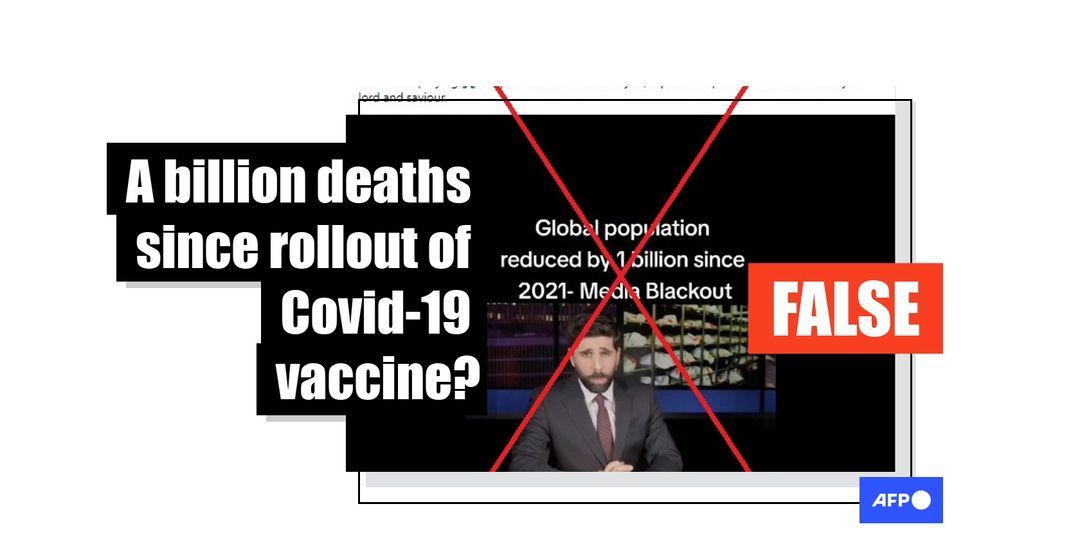
Covid-19 vaccines are not responsible for “one billion deaths” worldwide since they were rolled out to combat the coronavirus, contrary to false claims widely shared on social media. Global population data shows there were around 200 million deaths globally from the onset of the pandemic until the end of 2022 with experts projecting around 60 million deaths from all causes in 2023. Publicly available health information shows that only a miniscule percentage of deaths among people who had been vaccinated against Covid-19 could be attributed to the jabs.
“[One] billion people around the world are now dead (poisoned) since the rollout of the covid jab,” reads the opening line of a Facebook post shared more than 8,000 times since it was posted here on October 27, 2023.
The post continues: “For the love of God, please do not get vaccinated I told them, even if it means you get sacked from your job, find a way to survive as it will only be for a short period of time.”
The post is accompanied by a video making a similar claim from The People’s Voice, a website AFP has repeatedly fact-checked for promoting false claims here, here and here.

The same video was also shared by Facebook users from around the globe here, here, here, here, here and here.
Scientists raced to develop a vaccine against Covid-19 with the World Health Organization (WHO) issuing its first emergency use validation on December 31, 2020 (archived link).
A June 2022 study published in The Lancet found vaccines saved an estimated 19.8 million lives worldwide within the first year of their rollout (archived here).
Global data on deaths do not support the claim that a billion people had died from the jabs.
Deaths from ‘all causes’
According to Our World In Data (OWID), a global population database collated by Oxford University-based researchers, approximately 200 million people died globally between 2020 and 2022 (archived here).
Patrick Gerland, who heads Population Estimates and Projection Section of the UN’s Population Division, told AFP on November 7 “the figures are accurate” (archived here).
He added: “For the three years (2020-2022), the total number of deaths from all causes of deaths adds up to about 200 million.”
Covid-19 has killed 6.9 million people, according to the WHO from November 8, 2023, but Gerland says this will not affect long-term population estimates (archived here).
“In terms of impact of the Covid-19 pandemic on projections, the expectation has been to be limited to the recent period with an overall fast recovery and return to the long-term levels and trends,” he said.
OWID projects global deaths to decrease from around 67 million in 2022 to 60 million in 2023.
Vaccine-linked deaths
Although serious side effects from Covid-19 vaccines are possible, these are “extremely rare” according to the WHO.
“Vaccines are continually monitored for as long as they are in use to detect and respond to rare adverse events,” guidance from the global health agency says (archived link).
Safety data gathered from global inoculation campaigns show an extremely small number of deaths among the vaccinated can be attributed to the jabs.
In Australia, for example, the Therapeutic Goods Administration has identified 14 deaths that were likely linked to the shots out of almost 69 million doses administered as of November 2, 2023 (archived here).
Public health authorities in South Africa, New Zealand and Singapore all reported similarly small figures (archived links here, here and here).
Medical professionals have consistently said the benefits of receiving Covid-19 jabs outweigh the risks of adverse reactions.
AFP has repeatedly fact-checked vaccine-related misinformation here.
